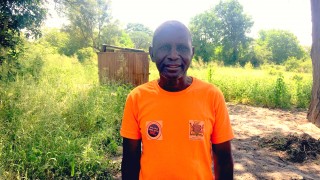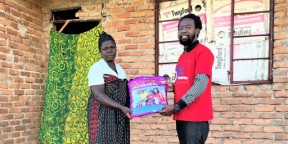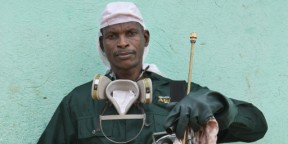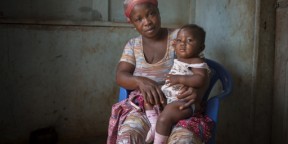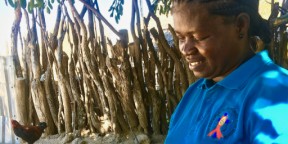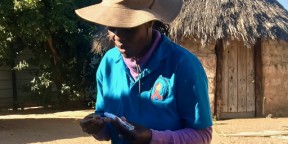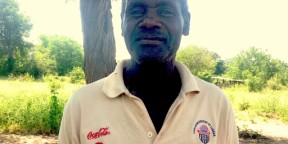Mr Mwaiya's story
Mr. Mwaiya is a health volunteer in Zambezi, located in Sesheke District in Zambia’s Western Province. He is one of the many malaria volunteers who have been trained by Zambian Ministry of Health staff, in partnership with the J.C. Flowers Foundation’s Isdell:Flowers Cross Border Malaria Initiative, to diagnose and manage malaria cases within their communities.
Understanding the enemy is essential for malaria elimination, and Mr. Mwaiya is proud to explain that people in Zambezi no longer die from malaria because they understand that mosquitos (not witchcraft) are the enemy. Once the community understood how malaria is transmitted, they were more likely to protect themselves from the disease by sleeping under mosquito nets, he shared.
There are no deaths caused by malaria because they know how to protect themselves
Over the past decade, Mwaiya has witnessed a transformation within his community, and within himself. “Before [I was trained] I was one of the people who went to a traditional healer,” he admitted. Mwaiya was motivated to become a volunteer after suffering from the disease himself.
Mwaiya has used his knowledge to save lives. He recounts finding a one-year-old child that was extremely ill with fever in 2016. Mwaiya knew the child should be tested for malaria using a portable rapid diagnostic test that can diagnose malaria with just a single drop of blood. But first he had to convince the parents to let him prick the child’s finger. Mwaiya explained to the parents how malaria is transmitted, and once they understood, Mwaiya was able to test the child for malaria and treat the child with just three days of very effective oral treatment – an act that he believes saved the child’s life.
In Zambezi, and other rural villages across Western Province, respected community leaders work hand in hand with malaria volunteers under the supervision of the local government health facility. Priests will encourage congregants to sleep under their bed nets, and village chiefs will get tested for malaria in order to set an example for the rest of the community. Malaria elimination requires all members of society to play an active role in preventing the disease, and seeking testing and treatment when needed.
As countries like Zambia approach malaria elimination, community acceptance and ownership of the malaria response is critical. Even if the NMEC has strong, evidenced-based malaria policies in place, malaria will not be eliminated unless mothers living far from the capital understand the threat of the mosquito, and choose to put their children under a bed net at night.
